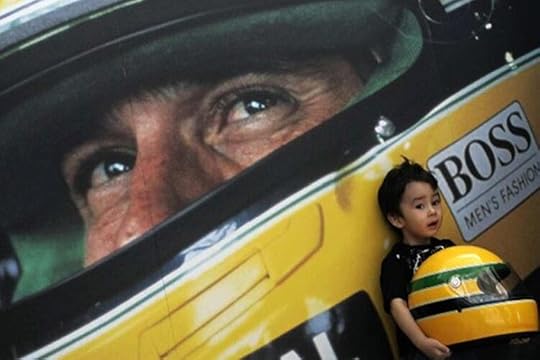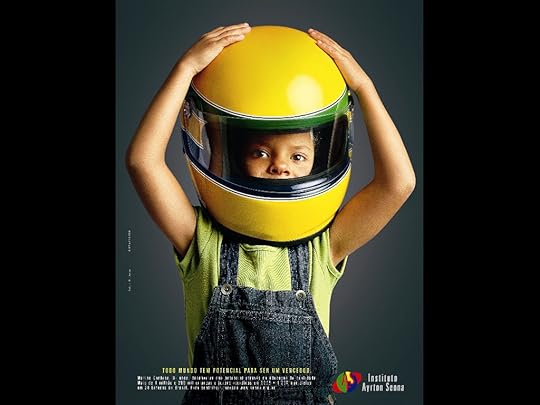What do you think?
Rate this book


224 pages, Paperback
First published April 23, 1995
“Outside, in the afternoon heat, more banners had been hung on the railings of the perimeter fence: ‘Senna obrigado’, ‘Adeus Senna’, ‘Senna tricampeão’, ‘Senna o melhor’. A few of them bore no name, but simply a single word: saudade. ‘It’s the most beautiful word in the Portuguese language,’ my friend Ana Cecília said as we bought a couple of bottles of mineral water from a vendor by the palace fence. ‘And it’s one of those for which there’s no direct translation. It means the sense of loss and sadness you feel when the person you love isn’t there any more. No other language has this word.”
“When Senna was alive, he was always on the move, always thinking, always changing the equation, always making everybody else question their own positions and readjust to his movements. Only when he died were we able to look objectively at his achievements: to balance the intention, the method and the outcome. And what the read-out said was that he wouldn’t be replaced, because such complexity of character and technical skill rarely coexist within a single human being.”
“There was never a more contemplative grand prix driver than Ayrton Senna, nor one more obviously concerned with the philosophical questions raised by his occupation. Once he was in the car, however, he didn’t go in for second thoughts; not about the dimension of his own talent, not about going for a pass at the first and slightest hint of an opportunity. He knew that this willingness to work in the margins was what gave him the advantage over those who were more inclined to pause, even for a microsecond, to check the odds and evaluate the risk.”
My brother had a mission, and our family is in deep emotion today because we didn't realize it had made him so greatly loved. I saw how the ordinary people showed their feelings. Some of them were shoeless; others were dressed in silk. He united them, even through his death.


